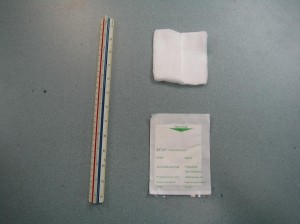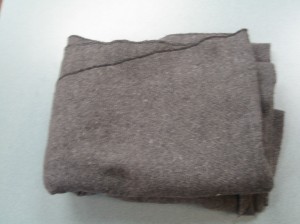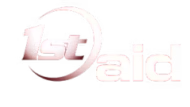
A first aid kit that is properly stocked can help you respond to common emergencies and injuries in a fast and effective manner. It is important to keep at least one first aid kit in your house and another one in your car. The kits should be stored in an easy to access location that is out of reach from young children. As for children who are old enough to understand the purpose of the kit, they should know where they are kept. You can buy first aid kits at drugstores or simply assemble your own.
Always remember that all family members should know where the first aid kit is stored so that in case of an emergency, it can be readily accessed.
Basic supplies to include in a first aid kit
These are the basic supplies that should always be adequately stocked in your first aid kit. Do not forget to regularly check the kit so that missing supplies can be replaced with new ones.
- Antibiotic ointment
- Adhesive tape
- Antiseptic solution
- Bandages including bandage strips and elastic wraps in differentsizes
- Cotton balls and cotton-tipped swabs
- Instant cold packs
- Duct tape
- Disposable synthetic or latex gloves
- Gauze pads and roller gauze in different sizes
- Petroleum jelly or other type of lubricant
- First aid manual
- Safety pins in different sizes
- Plastic bags for disposal of materials that are contaminated
- Soap or hand sanitizer
- Scissors and tweezers
- Thermometer
- Sterile eyewash
- Triangular bandage
- Turkey baster or bulb suction device for flushing of wounds
Medications to include in your first aid kit

In some cases, it is important to have medications on stock in your first aid kit, especially during allergies or insect bites.
- Over-the-counter oral antihistamine
- Activated charcoal
- Aloe Vera gel
- Calamine lotion
- Aspirin and non-aspirin pain relievers
- Personal medications that do not require refrigeration
- Over-the-counter hydrocortisone cream
- Syringe, medication spoon or cup
- If prescribed by your doctor, medications for allergic attack such as EpiPen
Emergency items
- Medical consent forms for every family member
- Emergency phone numbers and contact details for the family doctor, local emergency numbers, emergency road service providers and poison control center
- Medical history forms for every family member
- Sunscreen
- Blanket
- First aid manual
- Candles and matches
- Small waterproof flashlight and spare batteries
Regularly examine your first aid kit
Always check your first aid kit regularly at least every three months if the supplies are enough and make sure that the flashlight still works. In case the batteries have expired, simply replace them. As for the basic supplies, make sure that you replace the missing supplies with new ones so that everything is present in case of emergencies.
It is best to take a first aid course through St Mark James. You can get in touch with your local chapter for more information regarding the classes. When it comes to medical emergencies, always prepare the children in ways that are appropriate for their age.
The importance of having a first aid kit at home or in your vehicle should be stressed out at all times. With the kit readily available, the appropriate first aid care can be effectively delivered right away.
